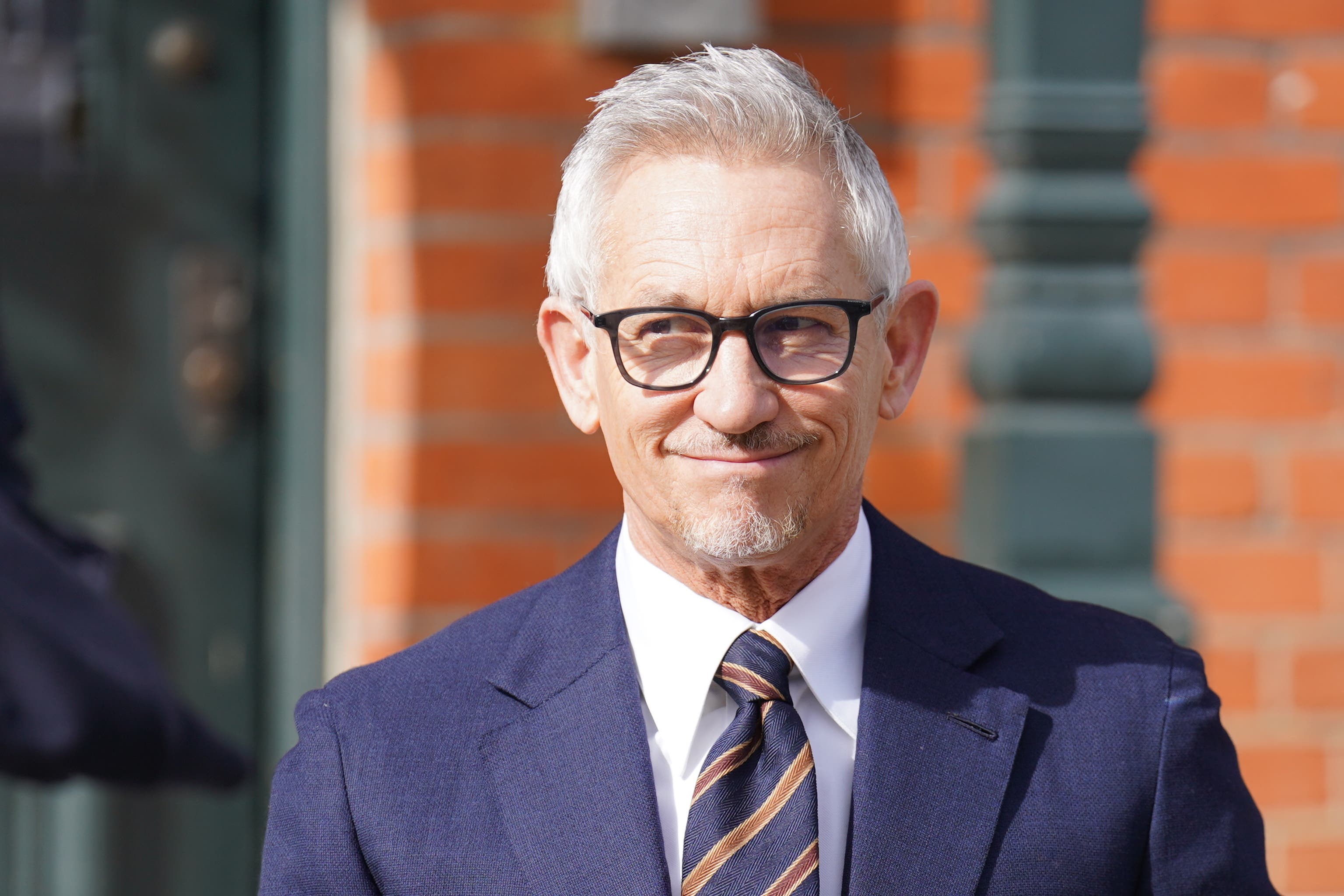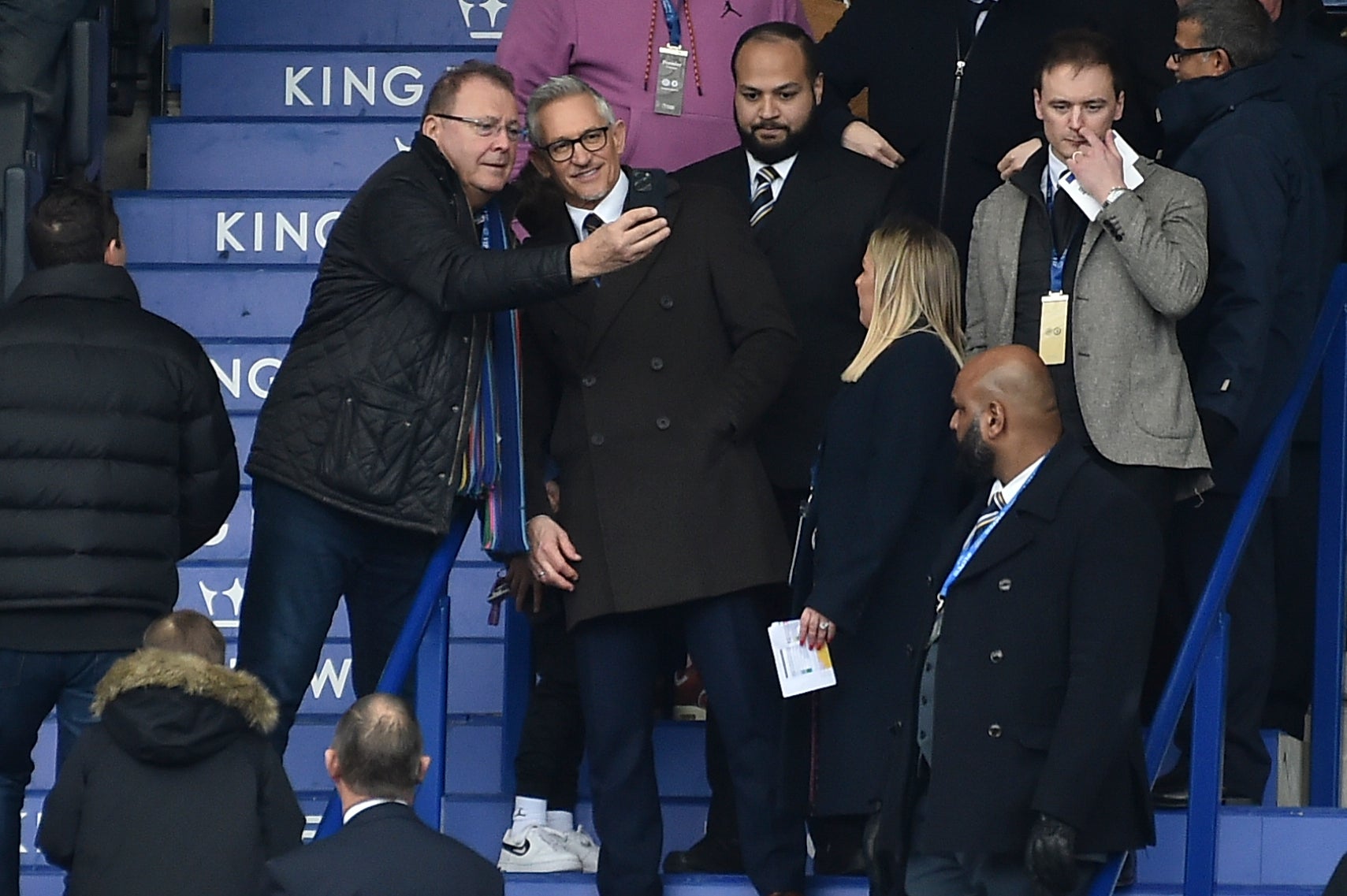
Following Match Of The Day presenter Gary Lineker’s temporary suspension from his hosting duties, questions have been raised over the BBC rules on impartiality.
Mr Lineker was barred from presenting on Saturday’s edition of the football highlights programme, with fellow pundits Ian Wright and Alan Shearer staging a boycott that saw the programme go silent. With no commentary or interviews, the infamous opening theme was replaced with an apology for the interruption to Saturday’s schedule.

The row began after Mr Lineker used his Twitter account to compare language used to launch a new government asylum seeker policy with 1930s Germany.
There is now “growing confidence” that the former England player will return to host Match Of The Day, with reports suggesting that Mr Lineker and the BBC are close to resolving the row on impartiality following “a lot of confusion” on his terms as a freelance broadcaster.
Here’s a look at the BBC’s rules on impartiality:
What do the BBC guidelines state?
The BBC says it is “committed” to achieving due impartiality in all its output, describing it as “fundamental to our reputation, our values and the trust of audiences”.
The corporation’s guidelines state that impartiality must be “adequate and appropriate to the output, taking account of the subject and nature of the content, the likely audience expectation and any signposting that may influence that expectation”.
It adds that BBC output must always “scrutinise arguments, question consensus and hold power to account” with both consistency and due impartiality.
Richard Sambrook, former director of news at the BBC and director of BBC Global News and the BBC World Service, told the PA news agency that “impartiality is crucial” for the BBC and staff in “everything they do”.
What is the BBC policy on social media?
The BBC’s guidelines note that social media is “now part of everyday life” and that all of its staff are free to “engage in social media activities if they wish”.
However, they state that, similar to official platforms, all activity “whether it is in a ‘professional’ or ‘personal’ capacity” should be informed by the Editorial Guidelines.
A “clear distinction” should be made between BBC spaces which are run by the BBC for BBC purposes and personal spaces which are run by staff or BBC talent for their personal purposes, the guidance states.

What did Lineker do?
Lineker has been reprimanded by the BBC after responding on Twitter to a Home Office video in which home secretary Suella Braverman unveiled the government’s plans to stop migrants crossing the Channel on small boats.
The ex-England striker wrote: “There is no huge influx. We take far fewer refugees than other major European countries.
“This is just an immeasurably cruel policy directed at the most vulnerable people in language that is not dissimilar to that used by Germany in the ’30s.”
The BBC said it had decided that Lineker would be stepping back from hosting duties on MOTD until they had “an agreed and clear position on his use of social media”.
Do the BBC guidelines apply to Lineker?
Lineker is a freelance broadcaster for the BBC, not a permanent member of staff, and is not responsible for news or political content, so does not need to adhere to the same rules on impartiality.
His Twitter remarks were made on his personal account, which does not include an official link to the BBC or MOTD in his bio.
BBC guidelines note, however, that figures who are “clearly identified with the BBC” are expected to behave appropriately and “in ways that are consistent with the BBC’s editorial values and policies”.
Mr Sambrook told PA: “For a sports presenter in their personal life to express views that aren’t impartial, is not as serious as if it was a news journalist.”







